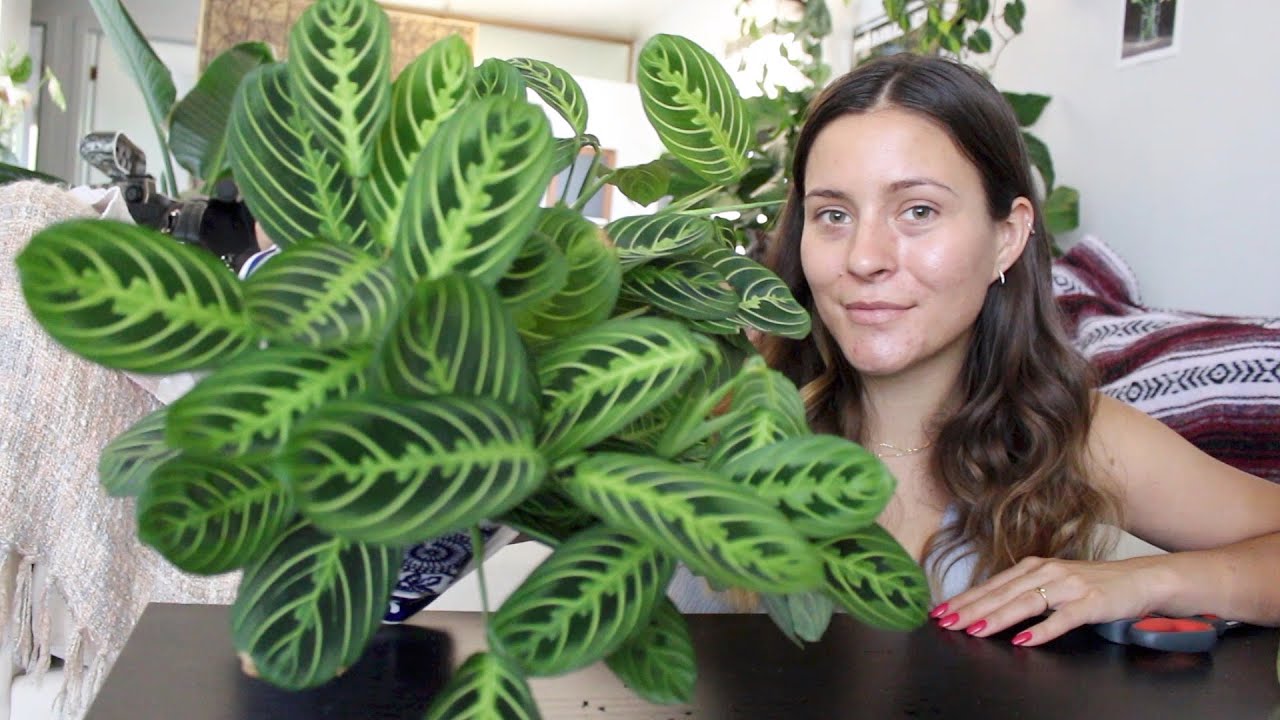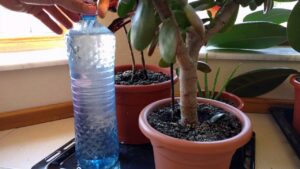Several methods for keeping cats away from houseplants have been devised to prevent their destruction. Lemon-based repellents, Lavender and eucalyptus essential oils, and Chicken wire have all proven to be effective in keeping animals away from houseplants. Here are some of the most effective ones:
Cayenne pepper
If you’re a proud owner of a home with a large garden, you may want to consider trying using cayenne pepper to deter cats from getting to your houseplants. While cats may be attracted to spicy foods, they’ll be put off by plants that smell strongly. Cats also don’t like the smell of herbs, so adding a little cayenne to a plant’s water can help keep them away.
However, cayenne pepper can have unintended side effects. The spicy scent can get on your cat’s fur and paws, and this may cause redness and irritation. This is a bad thing, so you’ll probably want to use a safer solution. While cayenne pepper can help deter cats, it’s not the best deterrent. Cayenne pepper is toxic to cats and can also cause skin irritation.
If you can’t get a cat to stop stealing your plants, you can mix up cayenne pepper with water to create a homemade repellent. Make a mixture of cayenne pepper and water or add hot sauce or ground spice flakes to a spray bottle. Remember to use gloves when applying this solution to your plants, as it can burn your hands. Just be careful that you don’t use too much, or you’ll ruin your house plants and your garden.
However, some experts disagree about the effectiveness of cayenne pepper as a natural deterrent. Cats are naturally scared of the spicy odor, so it might be a good idea to put some on your kitchen plants. But don’t let cats get too close to your plants – cats can be messy and unsanitary. Aside from that, cayenne pepper will make them run away!
Lemon-based repellents
While some citrus fruits and leaves can irritate cats, others do not pose any danger to your houseplants. Lemons and other citrus fruits, like lemon balm, are among the safest and most effective repellents. ASPCA-certified non-toxic, lemon balm is a popular choice for households with cats. Its citrus scent is not attractive to cats, and it has been deemed safe for use on plants by the ASPCA.
To prevent cats from damaging houseplants, prepare a homemade lemon-based repellent. These repellents can be sprayed directly on the plants. Alternatively, you can dilute mustard in water and spray it on the plants. Repeat the process every two days or so, and the cat will soon be repelled from your home! Just remember: cats are very sensitive to smells, so they can detect scents from different household items, including houseplants.
Another effective repellent for keeping cats away from house plants is citrus-based. Lemons contain citronella oil, which cats do not like. Citrus-based repellents must be shaken well before application to prevent cats from ingesting it. Use them sparingly and be sure to spray them near the plants’ eyes, where cats are most likely to be attracted.
Lavender and eucalyptus essential oils
Both lavender and eucalyptus have strong scents that deter cats. To use them, you must dilute them with water. You can also soak cotton balls in essential oils, such as lavender or lemon. Place these balls in places your cat cannot access. This way, you can ensure your house plants’ safety. But be careful, since essential oils can be toxic to cats.
Essential oils are volatile organic compounds that are found naturally in plants and contribute to their fragrance and taste. Essential oils are extracted from plants through distillation or cold-pressing. Some essential oils are used as insecticides, aromatherapy, personal care products, herbal remedies, and liquid potpouri. However, you should always use essential oils in small doses and make sure to dilute them properly.
Another option is to make a spray yourself. You can use lemon or orange peels, or even juice. You can also try lavender and eucalyptus essential oils, as they are not at all attractive to cats. Moreover, cats are highly sensitive to scents, and they do not like rough surfaces. If you do not want to buy a spray, you can always steep the citrus peels or juice in water.
Lemongrass and pepper can be applied directly to plants to deter them. Pepper is especially effective because cats are afraid of it. You can use pepper sprays that contain citronella oil. Make sure to shake the container before each use to make sure that the cat cannot get into them. If you have a cat that is particularly curious about a plant, sprinkle it with peppermill pepper.
Chicken wire
A few simple ways to keep a cat from destroying your house plants include using pet spray, putting sticky traps around the base of your plant, and securing the plants with chicken wire. Plants should be out of reach of cats, but they will still try to gnaw on the wire once or twice. If your cat persists, try placing the plants on a high shelf or balcony. The chicken wire will keep cats away and you can use it for other purposes.
Cats don’t like to get wet, so putting up chicken wire around your plants will keep them away. If you can’t find chicken wire to place around your plants, you can use stone as a deterrent. Any stone of any kind will work. You can also place a motion detector noise distractor under your plants to keep the cats away. Once the cat is trained to stay away from plants, you can compost the waste and keep it out of sight. Remember, cats’ waste takes two years to decompose.
Another way to keep cats out of your house plants is to install fencing. Putting up chicken wire will deter cats from using your flower beds as litter boxes. It is also easy to cut the chicken wire and make spaces for the plants to grow through. The chicken wire is soft enough that the cats won’t hurt the plants, but it is sturdy enough to prevent them from digging in the soil. If you don’t want to purchase chicken wire, plastic sheeting will do.
Covering the soil
One of the easiest ways to deter cats from destroying your houseplants is to cover the soil with something that is inaccessible to them. The soil can be covered with wood bark mulch or decorative rocks. Decorative rocks are often more appealing to cats and they are also a great visual deterrent. Aside from being decorative, wood bark mulch and decorative rocks also create a textured barrier around your plants.
For houseplants, try putting some pebbles in the pot. Cats do not want to eat soil that is covered with pebbles. Not only do pebbles look nice, but they are also moist, which is ideal for houseplants. Use medium-sized pebbles for best results. Once your houseplants are safe, simply replace the pebbles with fresh soil.
Another way to keep cats from destroying your house plants is to place them in planters that are out of reach for cats. Hanging pots are another great way to keep cats out. If you do not want to remove them completely, you can attach them to the wall. A barrier will also prevent them from getting to the plant. However, this method might backfire if your cat is a highly coordinated cat.
The easiest and quickest solution is to move them out of the way of cats. Ideally, they should be kept high up, either on a shelf or on a ceiling. You might need to relocate the plants if they are large or heavy. Then again, you may need to find another solution if you live in an apartment or house with limited sunlight. Besides that, you can cover the soil with stones or other decorative objects to discourage them from digging in the soil. Another way to deter cats from destroying house plants is to cover them with soil. While cats cannot eat the soil, they still want to get into the pot when they are eating.
Ultrasonic devices
In the trials, researchers found that ultrasonic devices to keep cats away from houseplants reduced the incidence and duration of cat incursions by 46% or more. Cat activity was monitored through cameras positioned near the foci of cat activity. The frequency and duration of cat incursions were also monitored. Results revealed that ultrasonic devices can be highly effective in keeping cats from houseplants. Ultrasonic devices are effective in keeping both indoor and outdoor cats away from plants, as they are non-toxic.
The CLEANRTH device has an extensive coverage area, covering up to 5000 square feet. It uses three directional sensors that emit ultrasonic waves. It has three viewing points in a 120-degree angle and is effective even when used in a distance of 52 feet. The device is easy to use and is compatible with most types of plants. This product is water-resistant and can be mounted with a stake in the garden. It can also be hung from a tree. It can be positioned virtually anywhere, but be sure to consult with a professional before trying it out.
There are several types of ultrasonic devices to keep cats away from houseplants. Most of these devices emit a high-frequency alarm that cats cannot tolerate. Some of these devices even contain flashing strobe lights or audible alarms to make cats stay away. Ultrasonic devices are a temporary solution and do not permanently solve the problem. Ultimately, the best solution is to decrease the number of feral cats in your neighborhood.



